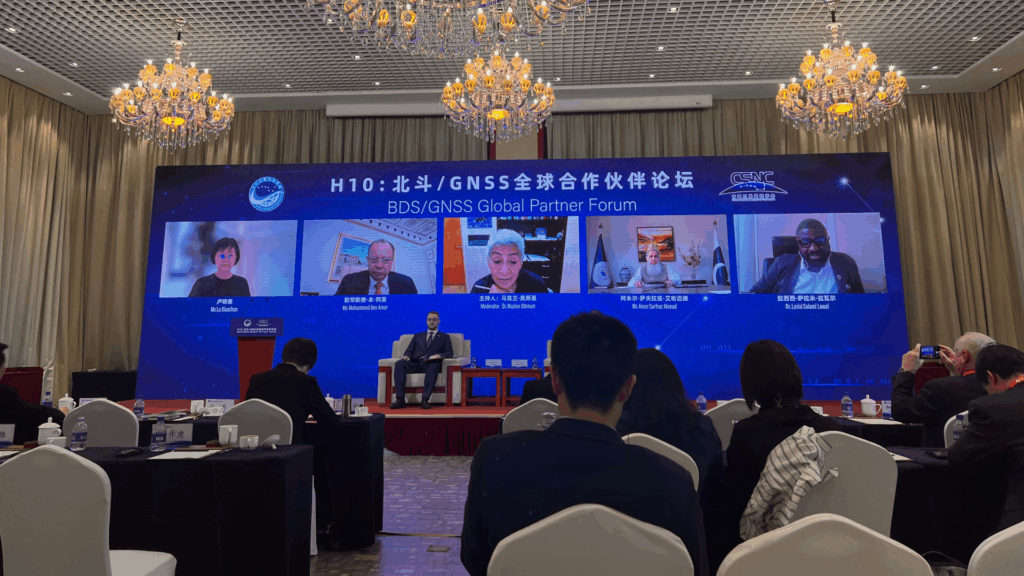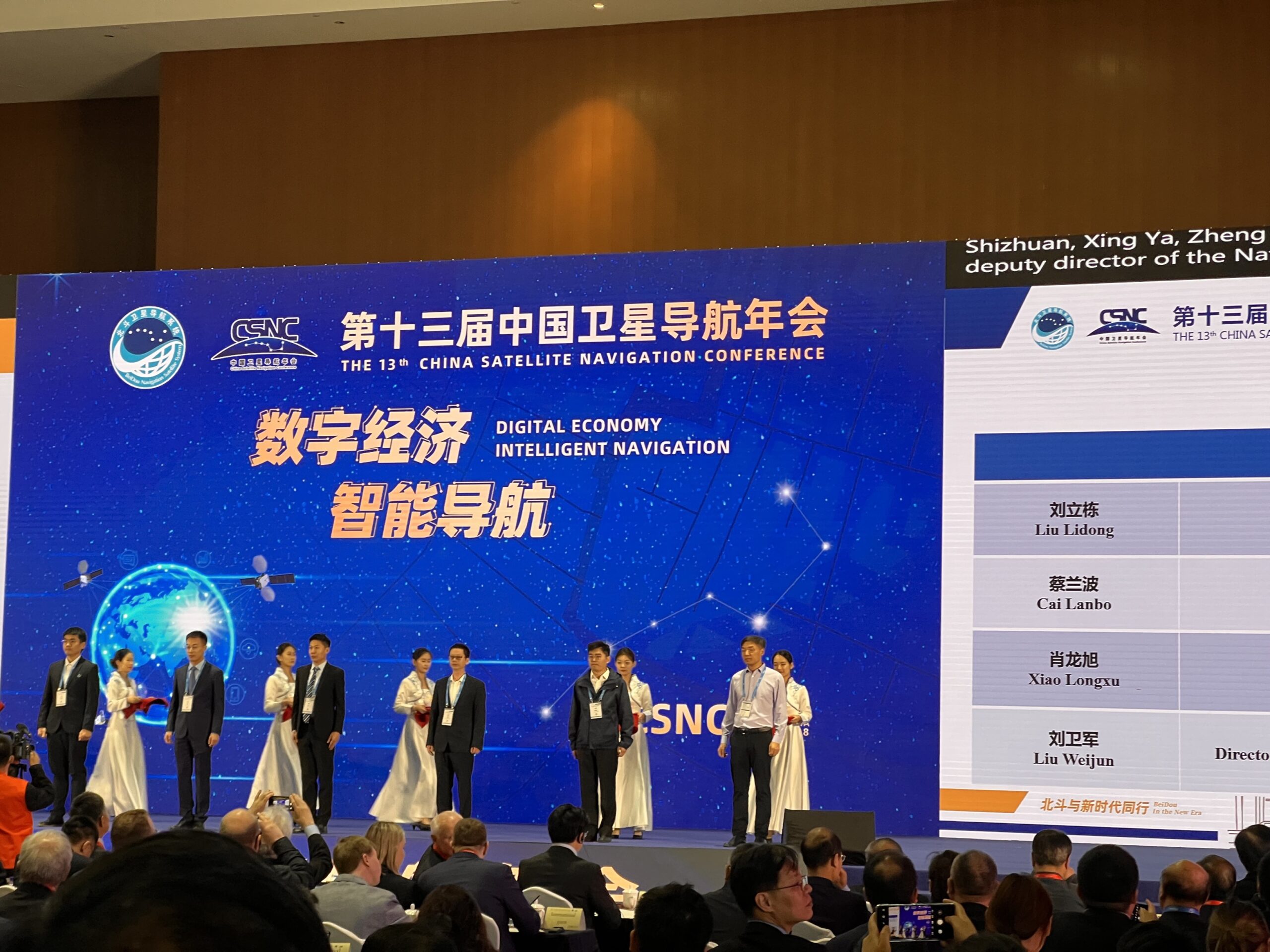

Access Partnership’s analyst Xiaoya Sun attended the 13th China Satellite Navigation Conference which took place from 26-28 April 2023 in Beijing. The annual event, one of the largest satellite navigation meetings in China, is jointly hosted by the Chinese government, the country’s satellite navigation system academic office, and several domestic companies.
The key focus of this year’s meeting was the development of the Beidou Navigation Satellite System (BDS) across multiple sectors, including transportation, mass consumption, agriculture, and autonomous driving.
Day One: Construction, multilateral cooperation, and reports from other GNSS administrations
During the meeting, BDS announced it would continue to carry out extensive technical exchanges and cooperation with other satellite navigation systems, such as GPS, Galileo, QZSS, and NaviC. China and Russia will also accelerate BDS and GLONASS cooperation.
Representatives from the US, Russia, Europe, Japan, and International Committee on Global Navigation Satellite Systems (ICG) all made speeches and introduced their respective satellite systems, including GPS, GLONASS, Galileo, QZSS, and GNSS. US policy continues to focus on maintaining global leadership in the service provision and responsible use of GNSS, including GPS and foreign systems.
Day Two: Scale applications and global partners
The second day of the conference comprised multiple, simultaneous high-end forums on BDS in different sectors. Topics covered included Beidou’s scale applications, legislation, standardisation, education, cultural industry, assured PNT, and Beidou/GNSS global partners.
Two of the most pressing issues addressed were Beidou’s scale applications and Beidou/GNSS global partners. Discussions about Beidou’s scale applications were split into two aspects: policy and supply and demand. Regarding the former, the Chinese government is taking measures to establish a more complete system for Beidou products and services, including establishing the Regulation on Satellite Navigation, expanding Beidou services to overseas countries, and improving product certification systems.


In terms of the supply-and-demand conditions of Beidou products and services, several private companies made reports on the application of BDS in smartphones, cars, and IoT. Short message communication services in smartphones, which are usually used for marine activities, outdoor tourism, fieldwork, and emergency rescue, attracted particular attention. A new signal system for capturing and processing weak signals has been designed to enhance the capabilities of BDS. The objective of short message communication in mobile phones is to not require a SIM card change, number change, or an additional device.
The Beidou/GNSS global partners forum was the first such meeting to take place at the confrence. Multiple speakers from United Nations Office for Outer Space Affairs, Asia-Pacific Space Cooperation Organisation, Pakistan Space & Upper Atmosphere Research Commission, and Nigerian Communications Satellite Limited all made reports on Beidou/GNSS global cooperation, as well as regional satellite developments. Currently, applications of BDS are mainly constrained to Asian and African countries; for example, the use of the space-time information cloud platform in railways in Africa and the CHCNAV BDS application in Kazakhstan.
Conclusions
The first day of the conference emphasised the general development of BDS and its cooperation with international satellite systems, such as GPS, Galileo, and GLONASS.
Currently, scale applications of BDS remain regional (mainly in Asian countries). The Chinese government has set out an ambiguous plan to expand coverage of BDS globally by establishing legislation and completing product certification systems, as well as improving BDS’s core technology. One issue that will soon require long-term attention is how different satellite systems in GNSS can be better compatible and interoperate with each other.
